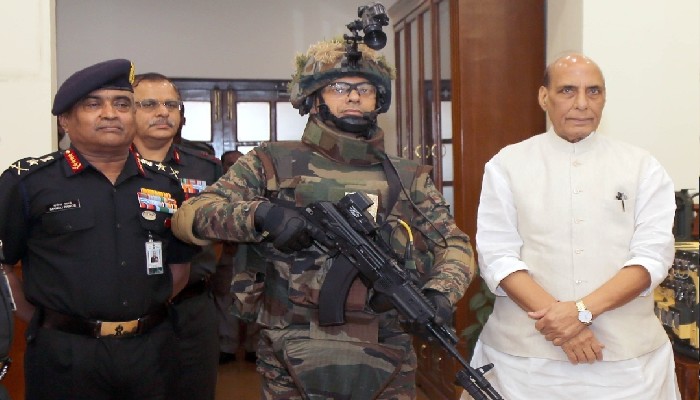Rajnath Singh called for reform of the United Nations in the wake of recent crises all around the world
Defence Minister Rajnath Singh has made a powerful argument for reform of the United Nations by emphasising that the international organisation would gradually lose its efficacy in the absence of democratisation in its decision-making.
In a virtual speech at the Moscow Conference on International Security on Tuesday, the Defence Minister also warned that the possible geopolitical fault line in East Asia's maritime region may be "graver" than what is now apparent in the face of rising tensions in the Taiwan Strait.
The Defence Minister claimed that the resistance by major powers to modernising UN structures ignores changing geopolitical conditions as well as the economic and technical advancements that have occurred since 1945.
He stated: "Global security in the framework of multilateralism requires abiding by the UN charter and principles of international law, which act as a bulwark against anarchy, instability, and higher chances of conflict."
He said that rather than "zealously guarding the status quo," the UN can only provide meaningful answers if it has the voice of the whole planet. He said, "Conflicts could seriously jeopardise political and economic stability and development efforts. For example, the potential geopolitical fault line in the maritime domain — particularly in East Asia — could be graver than what we are witnessing today."
Indirectly referring to how, in the wake of US House Speaker Nancy Pelosi's recent trip to Taipei, the Chinese military has been conducting extensive military exercises along the Taiwan Strait, he stated, "As a nation central to the Indian Ocean, India is committed to a free, open, secure, and inclusive Indo-Pacific region that promotes sustainable maritime trade and economic practices, resilient infrastructure and adherence to global legal order."
He said that India values multilateralism, as seen by its efforts to settle maritime boundary disputes with neighbours in accordance with international law and its emphasis on regional maritime cooperation in the Indian Ocean.
While acknowledging that the UN has given a platform for global progress in a number of areas, the Defence Minister pointed out that clearly there is a "crisis of confidence" today in the UN system.
"While the UN has addressed most of these issues somewhat partially and intermittently, our collective effort has nonetheless fallen short in providing effective and enduring solutions, particularly due to the infirmities within the multilateral system," he explained.
"Several contemporary global challenges have come to the fore such as terrorism, radicalism, climate change, growing asymmetric threats, disruptive role of non-state actors and the intensifying geopolitical competition, all of which call for a robust multilateral response," he added.
According to Singh, this "worrying shortcoming" of the UN system is a manifestation of its structural inadequacy. "Without comprehensive reforms of UN structure and without democratisation in decision-making, the UN might progressively lose its effectiveness and relevance," he observed.
"When power structures continue to reflect the status quo of a bygone era, they also start reflecting a lack of appreciation of contemporary geopolitical realities," he said. According to Singh, at the core of India's call for reformed multilateralism lies the reform of the UN Security Council, reflective of the contemporary realities of today.
"There is an incongruity today in the expectation that multilateralism under the UN will deliver, when the UN and its sister organisations, including economic and financial entities, are structurally frozen or hardly moved since their inception," he said. Singh also stressed that the UN Security Council must be made more representative of developing countries if it wants to retain the trust and confidence in its ability to provide leadership to the entire world.
 Contact Us
Contact Us  Subscribe Us
Subscribe Us









 Contact Us
Contact Us
 Subscribe
Subscribe
 News Letter
News Letter

